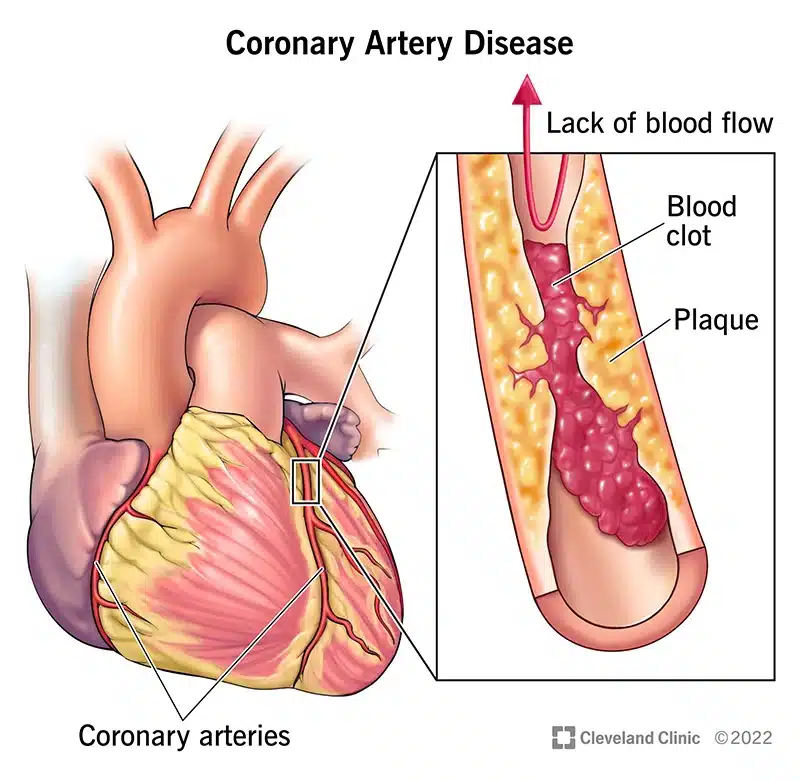Anticoagulation Therapy for Atrial Fibrillation
Maintaining a Constant Pace: Anticoagulant Treatment for Stroke Avoidance in Atrial Fibrillation
The common heart rhythm condition known as atrial fibrillation (AFib) is characterized by irregular and frequently fast heartbeats. An important worry associated with AFib is the elevated risk of stroke. Because of the erratic heartbeat, blood clots may develop in the heart and then move to the brain, obstructing arteries and resulting in strokes. Fortunately, anticoagulant medication is essential in helping people with AFib lower this risk. This blog post discusses anticoagulant therapy, its advantages for preventing stroke in people with AFib, and things to think about when selecting the appropriate drug.
Table of Contents

Why Is There a Higher Risk of Stroke With Atrial Fibrillation?
Anticoagulation Therapy for Atrial Fibrillation
There are two upper chambers (atria) and two bottom chambers (ventricles) in the heart. Electrical signals in a healthy heart regulate contractions to effectively pump blood. These impulses become jumbled in AFib, which makes the atria quiver erratically rather than constricting normally. This trembling may cause blood clots to form in a region of the left atrium, which is a stagnant part of the heart. A dislodged clot has the potential to obstruct an artery in the brain and result in a stroke by moving through the bloodstream.
The Benefits of Anticoagulation Therapy
Anticoagulation Therapy for Atrial Fibrillation
In individuals with AFib, anticoagulation medication, commonly referred to as blood thinners, can avoid stroke by:
- Thromboprophylaxis: By disrupting particular stages in the blood clotting cascade, these drugs lessen the risk of blood clot formation (the set of events that lead to clot formation).
- Mitigation of risk: For those with AFib, these drugs dramatically reduce the risk of stroke by decreasing the production of clots.
Anticoagulation Therapy Types for AFib
Anticoagulation Therapy for Atrial Fibrillation
Anticoagulant drugs fall into two primary groups when it comes to preventing stroke in AFib patients:
- Antagonists of vitamin K (VKAs):
- Mechanism: For instance, the mechanism of action of warfarin (Coumadin) and similar drugs is to prevent the function of vitamin K, which is necessary for the blood’s generation of clotting components.
- Points to consider: In order to guarantee that the medicine is at the ideal level to prevent clots without raising the risk of bleeding, VKAs need to undergo routine blood monitoring (INR testing). Dietary restrictions could be required because some foods, especially leafy green vegetables, can interfere with the way warfarin works.
- Oral anticoagulants without vitamin K (NOACs):
- Examples: include Apixaban (Eliquis), Dabigatran (Pradaxa), Rivaroxaban (Xarelto), and Edoxaban (Savaysa).
- Method: Unlike VKAs, which alter vitamin K’s function in the clotting process, these more recent drugs function by directly targeting particular clotting factors.
- Considerations: Taking into account Unlike VKAs, NOACs often do not require routine blood testing; nonetheless, they may interact with other drugs in particular ways. The constraints associated with their use may vary based on renal function.
Selecting the Appropriate Anticoagulant Treatment
Anticoagulation Therapy for Atrial Fibrillation
Anticoagulant therapy selection is influenced by a number of factors, such as:
- Individual risk factors: We’ll take into account things like age, medical history, bleeding risk, and other health issues.
- Lifestyle factors: The selection process is influenced by medication adherence and dietary practices.
- Patient preference: Medication that doesn’t need to be checked on frequently may be preferred by certain individuals.
- Cost and accessibility: The price of prescription drugs and insurance coverage may have an impact.
Anticoagulation Therapy for Atrial Fibrillation
Your physician will go over these elements with you and suggest the anticoagulant treatment that is best for your particular circumstance.
Importance of Adherence and Monitoring
Anticoagulation Therapy for Atrial Fibrillation
Adherence to your prescribed anticoagulant medication is essential for optimizing the advantages of stroke prevention. Adherence to your monitoring regimen is also important. A major contributing factor to an increased risk of stroke is missing doses or stopping medication without first talking to your doctor. It’s crucial to schedule routine follow-up visits with your doctor in order to discuss any adverse effects and track the medication’s effectiveness.
Final Thoughts: Consulting Your Physician
Anticoagulation Therapy for Atrial Fibrillation
For those with AFib, anticoagulation treatment is an effective means of preventing stroke. By collaborating with your physician, you may select the best drug, take it as prescribed, and lower your risk of stroke considerably. Recall that maintaining good communication and following treatment are essential for a healthy life after an AFib diagnosis.





Recent Comments